Parallettes are gymnastics bars in a small format, which is why they are also called mini bars. Parallettes training is a highly effective way to get your body in shape and the training equipment is suitable for a variety of different exercises. And not only for gymnastics but also for various own weight exercises.
But what exactly are the advantages of Parallettes training? And what exercises are there for the mini bar? Before we answer these questions, we will introduce you to the different Parallettes variants.
By the way, the training device owes its name to the fact that the bars are parallel to each other.
What are the different types of parallel bars?
There are low as well as high and medium Parallettes, whereby the first two are most frequently used. In general, the lower the mini bar, the harder the exercises.
Low Parallettes weigh very little and are usually no larger than 30 centimeters (11,8 inches). The advantage is obvious: it is a highly effective training tool that you can take with you anywhere to complete your workout.
Larger mini bars also offer you an enormous variety of exercises and allow you to perform dead weight exercises that are not possible without tools (e.g., dips). Likewise, the L-Sit and other (gymnastic) exercises can be trained wonderfully with high Parallettes.
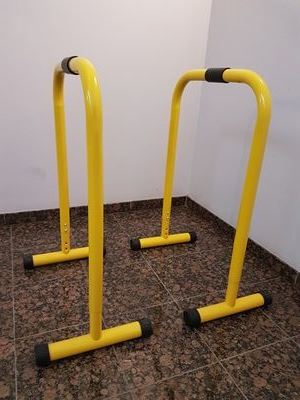
The medium version is an intermediate solution between low and high Parallettes. It combines the advantages of both versions and is therefore suitable for extensive Parallettes training. These are also available as wooden parallettes or as steel parallettes.
Note: The bigger you are, the higher the mini bar should be. Only then will you have enough room to do all the exercises correctly.
Advantages of Parallettes training
Parallettes take up very little space, are light in weight (a few kilos) and can be used anywhere. For example, you can easily take the mini bar with you when traveling. For the Parallettes training you need nothing but your body weight and the exercises are not only suitable as a stand-alone workout but can be used as a supplement to conventional fitness training. With the mini bars you improve your coordination as well as your balance and you strengthen your whole body (especially your core, arms, torso, and shoulders).
An additional advantage of the miniature gymnastics bars is their affordable price. The one-time purchase cost is significantly lower than that of other exercise equipment and much lower than gym membership fees.
Parallel training – other advantages
- Compared to push-up grips and kettlebells, parallettes offer greater stability during exercises such as handstands or planches, making them safer to work-out on.
- For handstand push-ups and other exercises, the mini bar ensures a greater range of motion, maximizing the effectiveness of the workout.
- By protecting the wrists – they are not bent during push-ups and other exercises – higher numbers of repetitions and more complex movement sequences are possible. This also has a positive effect on training effectiveness.
Speaking of wrists...
Before you start Parallettes training, you must be aware of the correct hand position, i.e., the ones that protect against injury. This not only prevents wrist and shoulder injuries, but also ensures optimal power transmission. To perform your Parallettes workout, place your wrists in a neutral position and rest the thumbs of both hands on the bars. Then grasp the bars in a normal grip by sliding your thumbs inward and forming a "closed unit" with your other fingers.
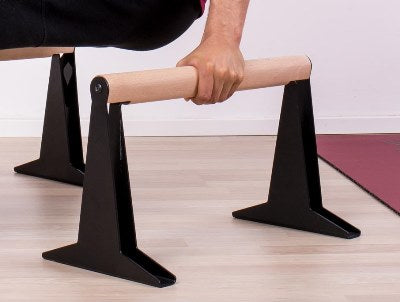
Important: Your hands should be placed in the middle of the bar. This will ensure that you don't slip during the Parallettes workout.
Exercises for the Parallettes training: the L-Sit
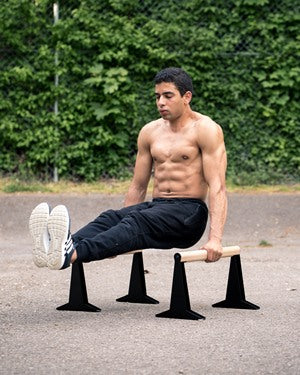
With the L-Sit, you mainly target your core and abdominal muscles. Get into the seat between the bars and support yourself with your hands on the bars. Push up from the arms so that your elbows are almost extended. Keep your feet on the floor. Now lift your extended legs so that they form a right angle with your torso.
Tip for an advanced parallettes workout: hold the L-sit position a little longer than usual during the repetitions.
Dips for plump upper arms
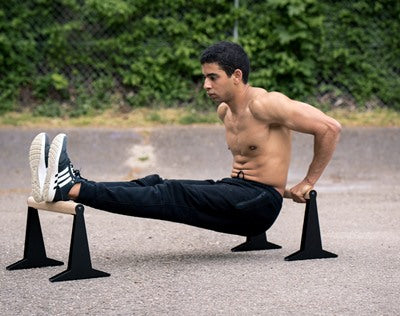
Dips strengthen your triceps in particular. Also, for this exercise, sit between the Parallettes and push yourself off the ground from your arms (elbows almost fully extended). Place your extended legs on your heels and bend your elbows behind your body to lower your hips. Your upper arms are next to your chest. Once your buttocks are almost touching the floor, push yourself back up via an extension of your elbow joints.
For a more advanced Parallettes workout, rest your heels on a second pair of Parallettes or on an object with a slight elevation.
Not for weak arms: the handstand
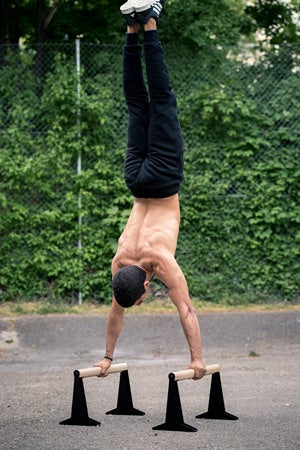
The handstand requires good body tension and especially stresses the arms, back and shoulders. Support yourself with both hands on the Parallettes and bring your outstretched legs into the air by gaining momentum with one leg and leading the other leg upwards with this momentum. At the same time, shift your body weight forward. Timing and speed are key here, because too much speed will cause you to topple forward, and too little speed will prevent you from getting into support.
Tip: Perform the handstand first against a wall and use it to "catch" your legs. Advanced exercisers can complete push-ups in a handstand.
Parallel Training: Push-Ups
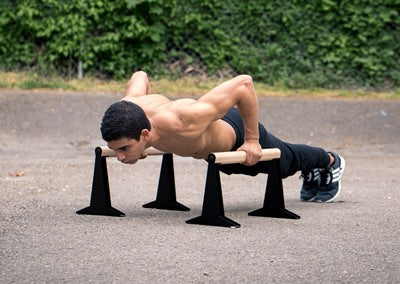
Use push-ups to steel your chest and shoulders. Grasp the bars with your arms nearly extended and extend your legs back so your body forms a line. Your hands should be at level with your chest. Now lower your upper body down by bending your elbows. Your elbows will go backward as you do this. The end of the downward movement is reached when your chest is at level with the parallettes. Then push yourself back up by extending your elbow joints. Alternatively, you can of course also complete these optimally with our push-up grips.
For an advanced Parallettes workout, you can lower your chest a little further in the downward movement.
The Planche as the supreme discipline
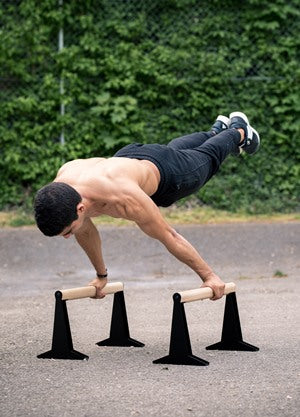
With the Planche you train primarily core, chest, shoulders and back. Grasp the bars and look down. The body weight is shifted in the direction of the shoulders, i.e., forward. Lift your feet and bring them together to extend them backward. Your pelvis and shoulders should be parallel to the floor.
Tip: To practice the movement, you can first place your feet on an elevated object. This way you can get used to the strain and balancing.
Calisthenics shoulder workout with the Parallettes for advanced:
Conclusion about the Parallettes workout
Now you know the different mini bar variations as well as the advantages of the and some exercises for the Parallettes workout. Perform the workout regularly and experience the positive effects of the miniature gymnastics bars. It is an effective training tool that will help you strengthen your entire body and improve your coordination and balance. We wish you a lot of fun and success with your individual Parallettes training!
Recommended articles:
Pull-up bar exercises with the Pullup & Dip bar for beginners & pros
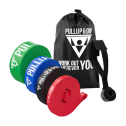
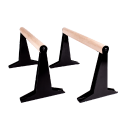
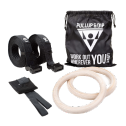

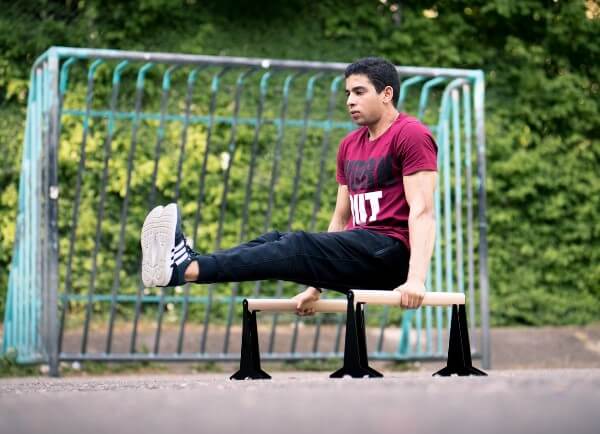
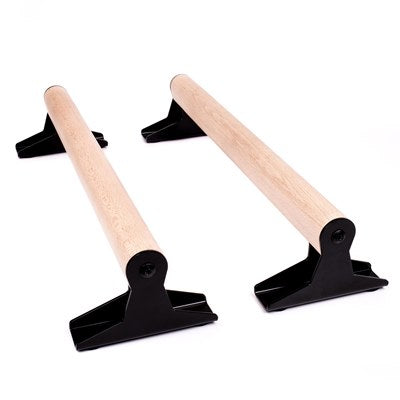
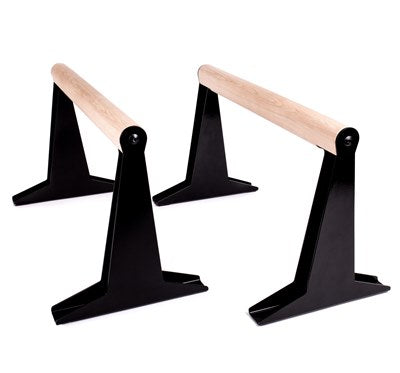
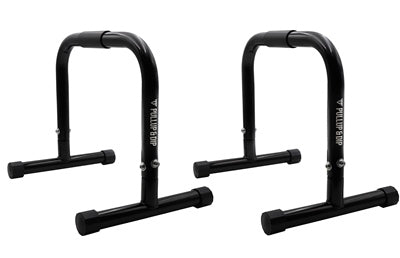
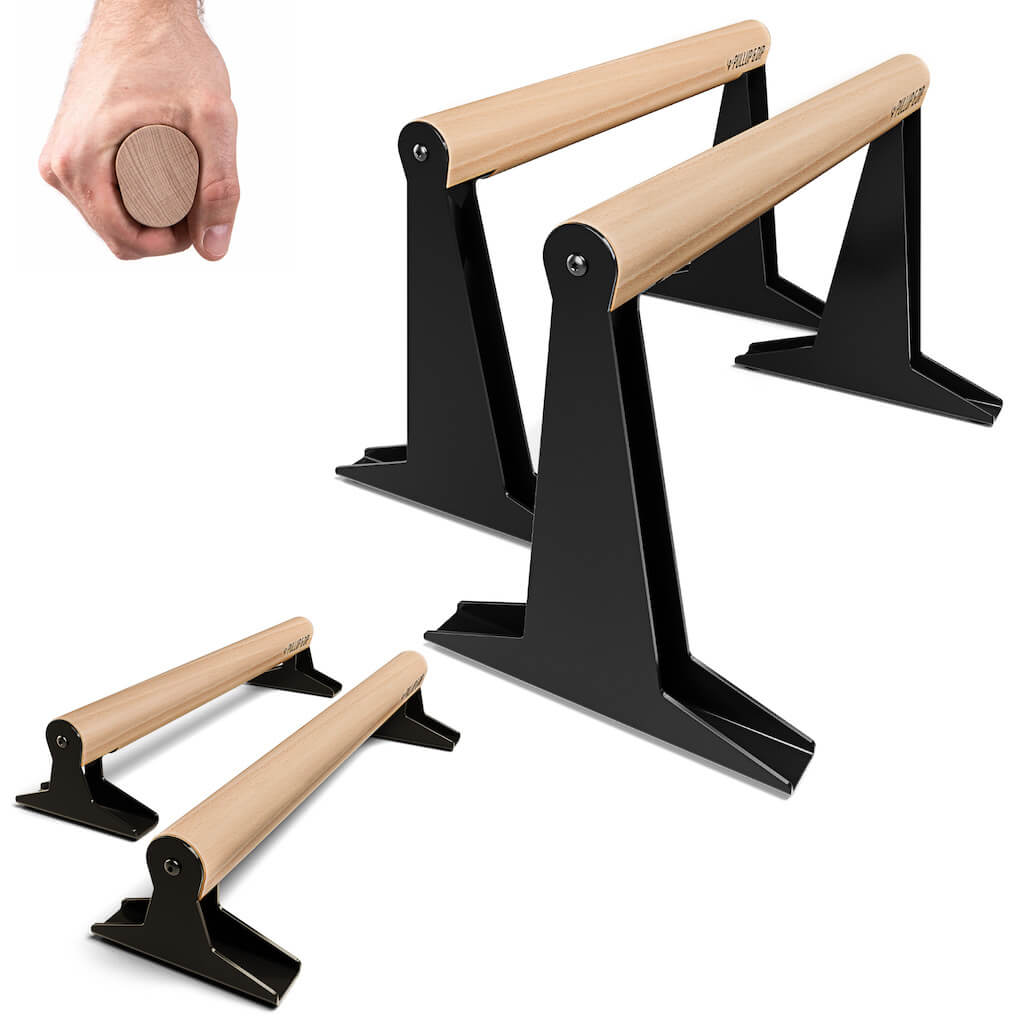
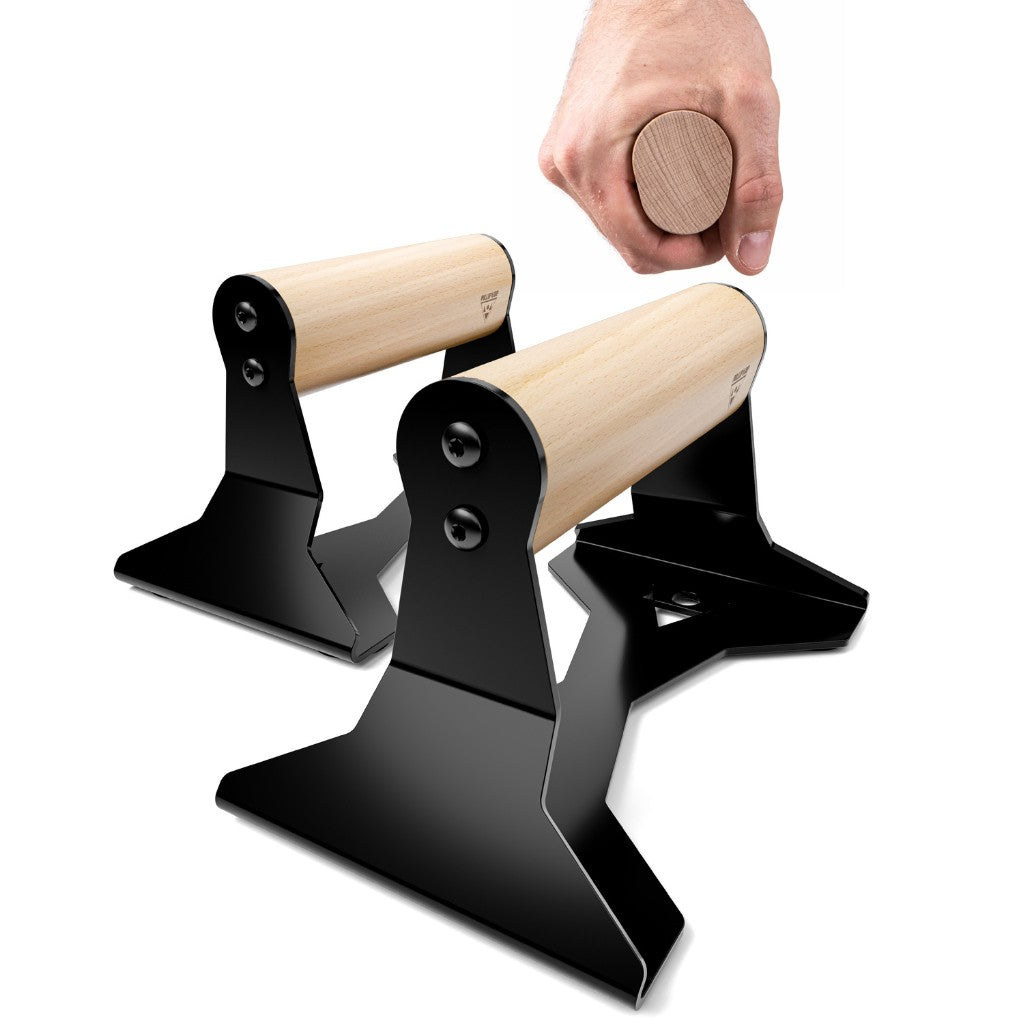
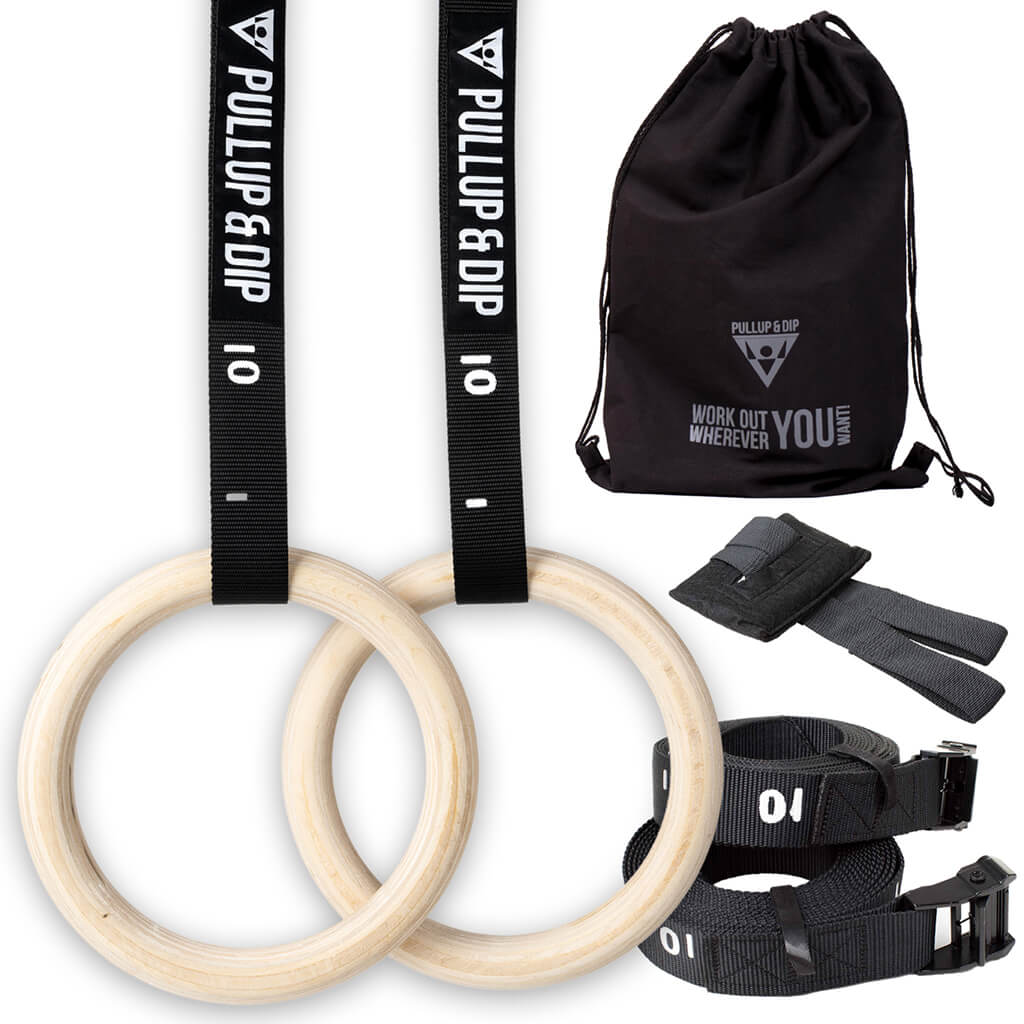
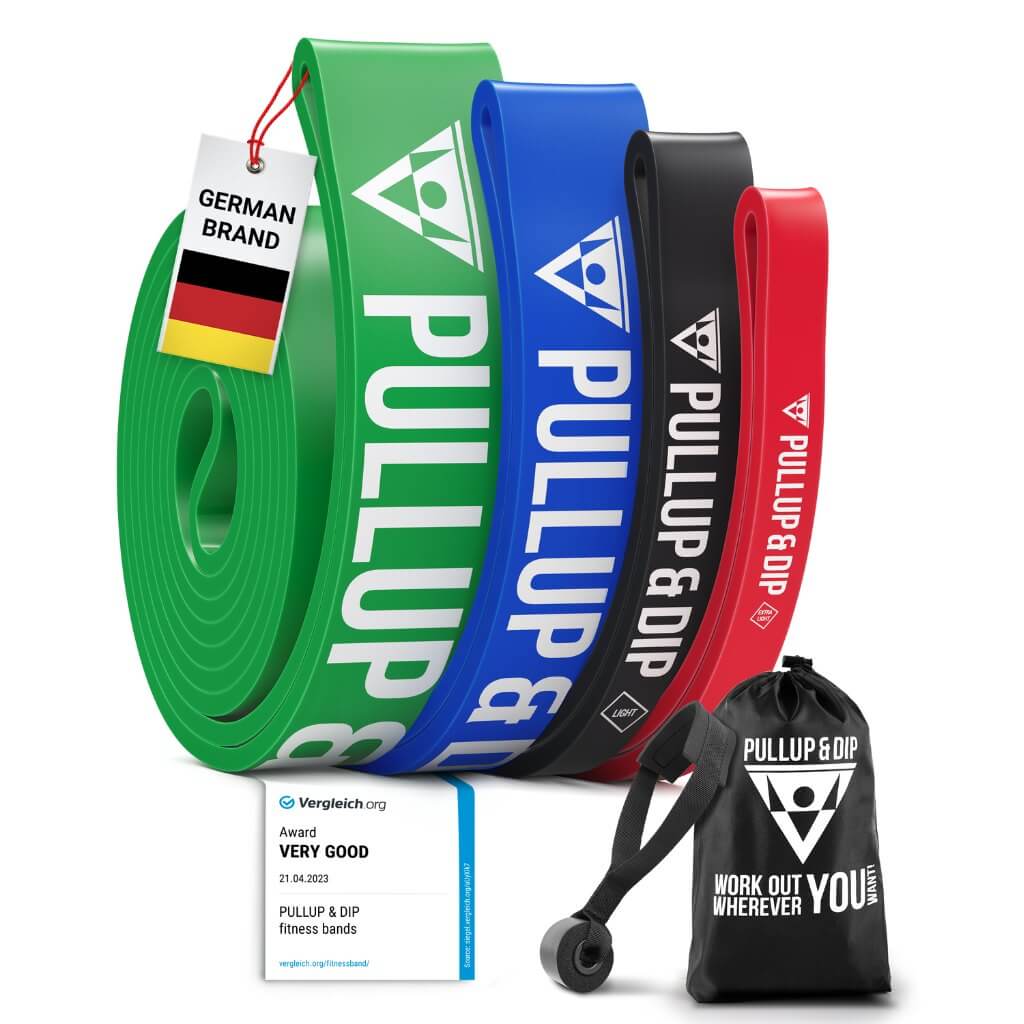
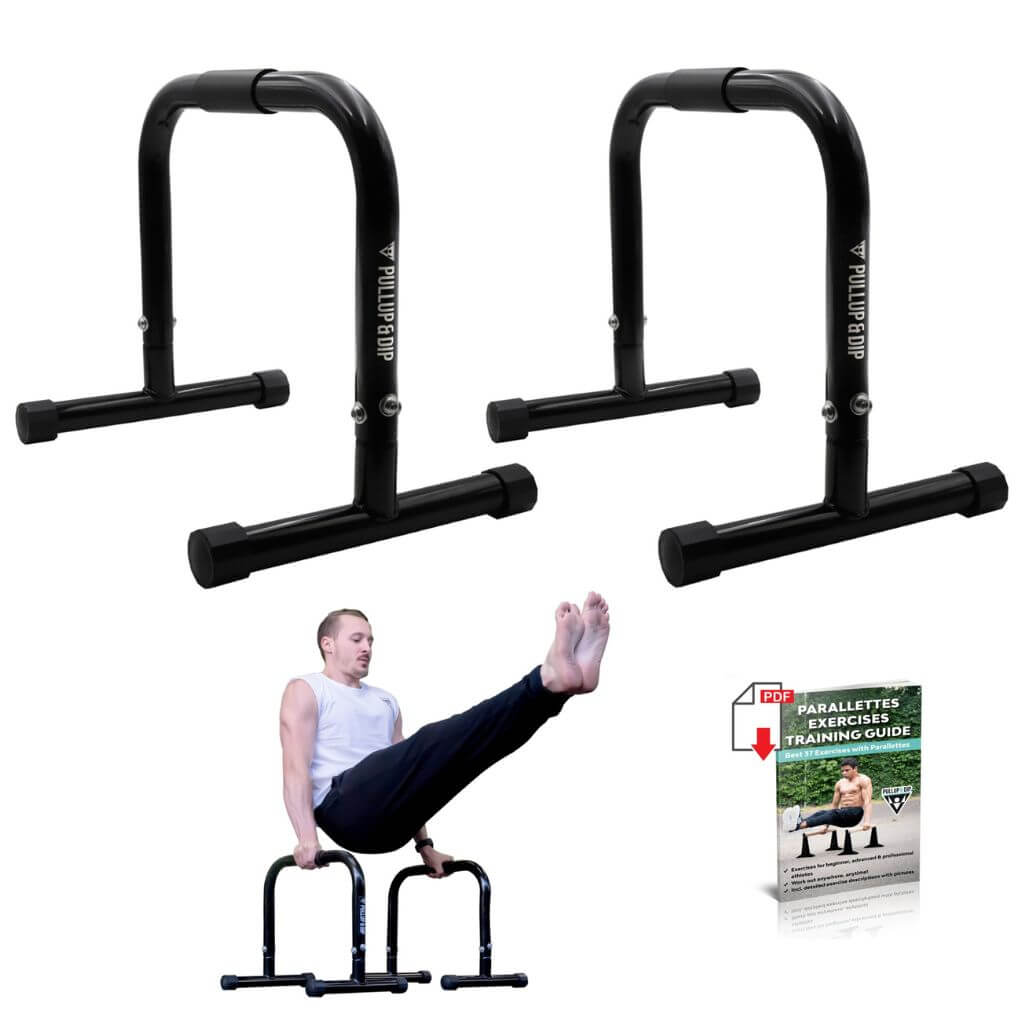
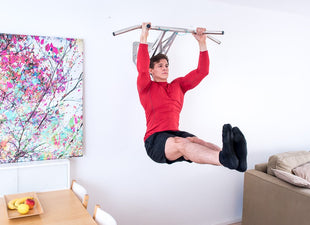
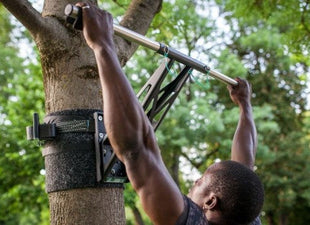

Leave a comment
All comments are moderated before being published.
This site is protected by hCaptcha and the hCaptcha Privacy Policy and Terms of Service apply.